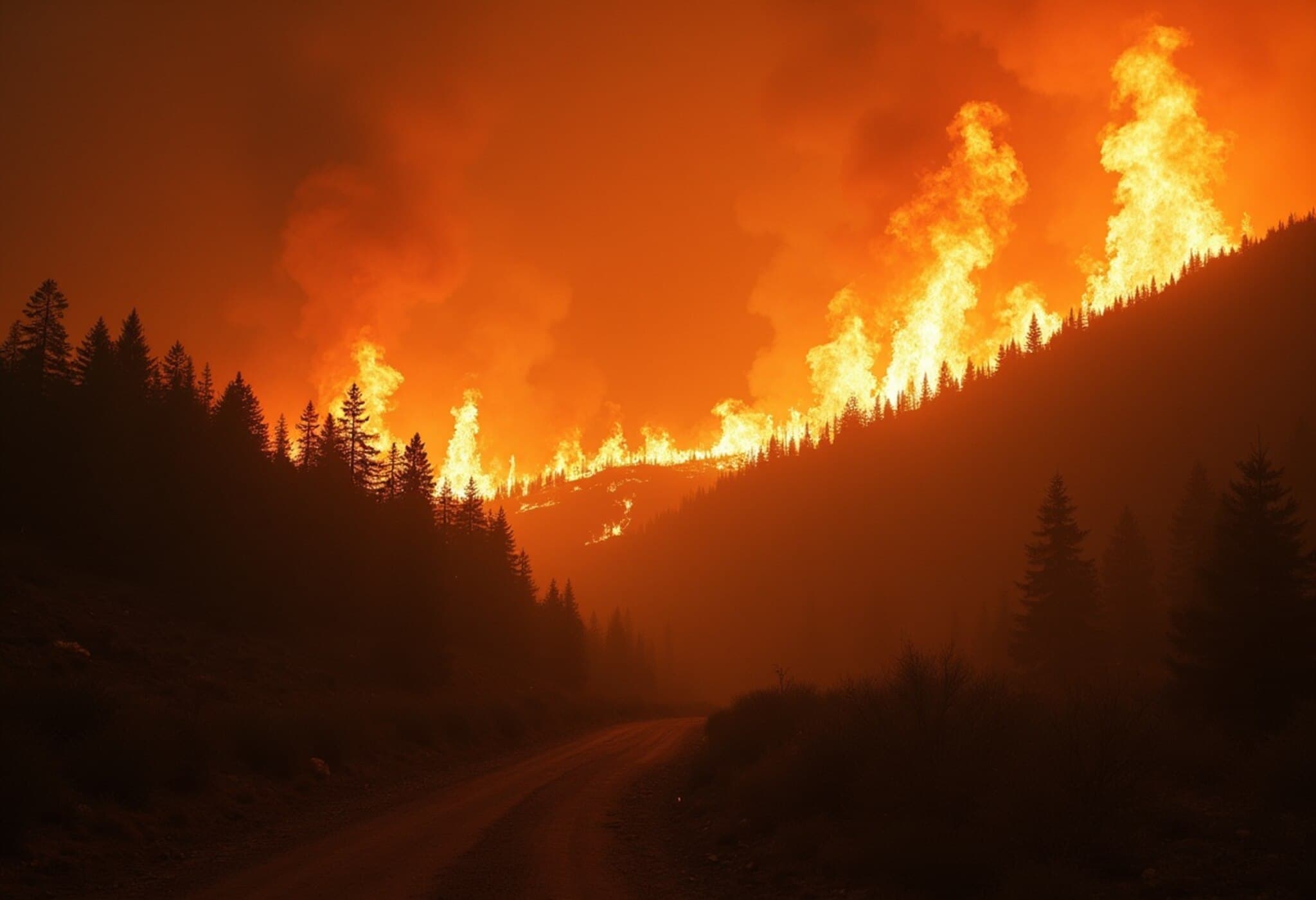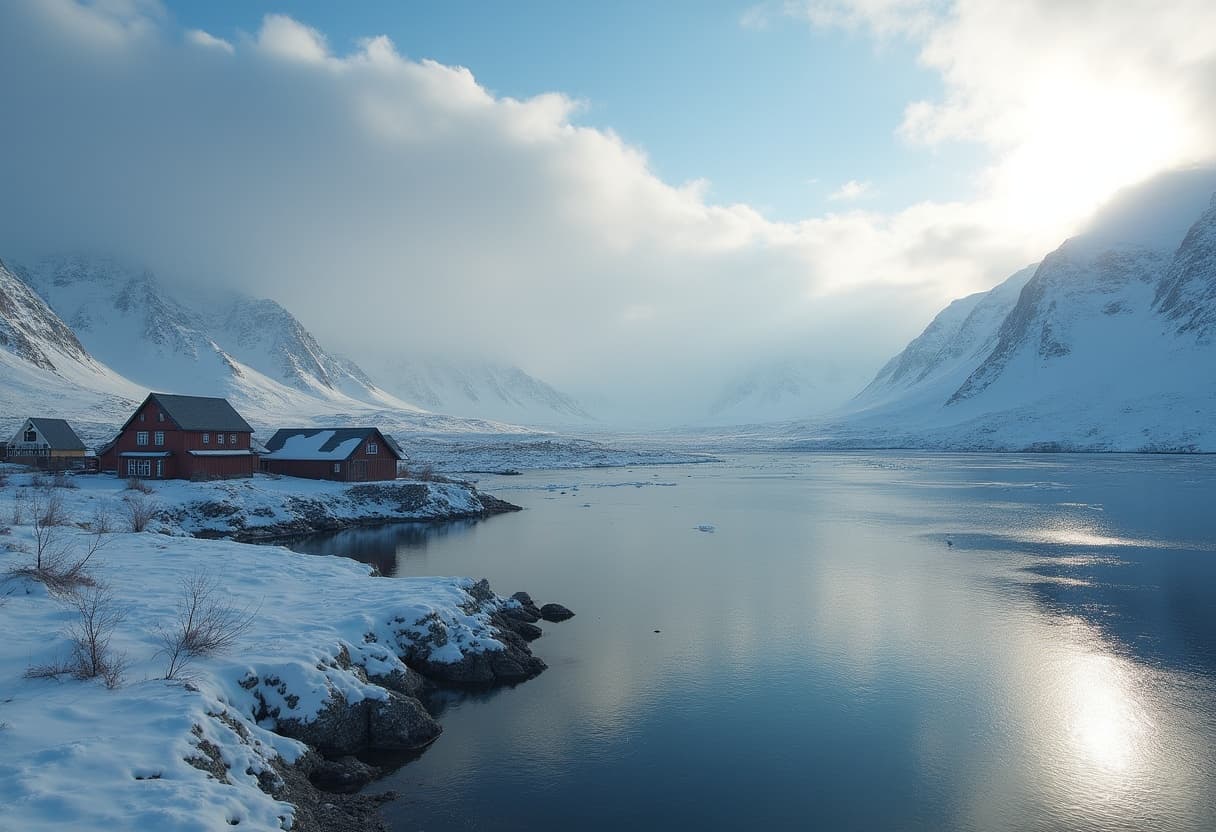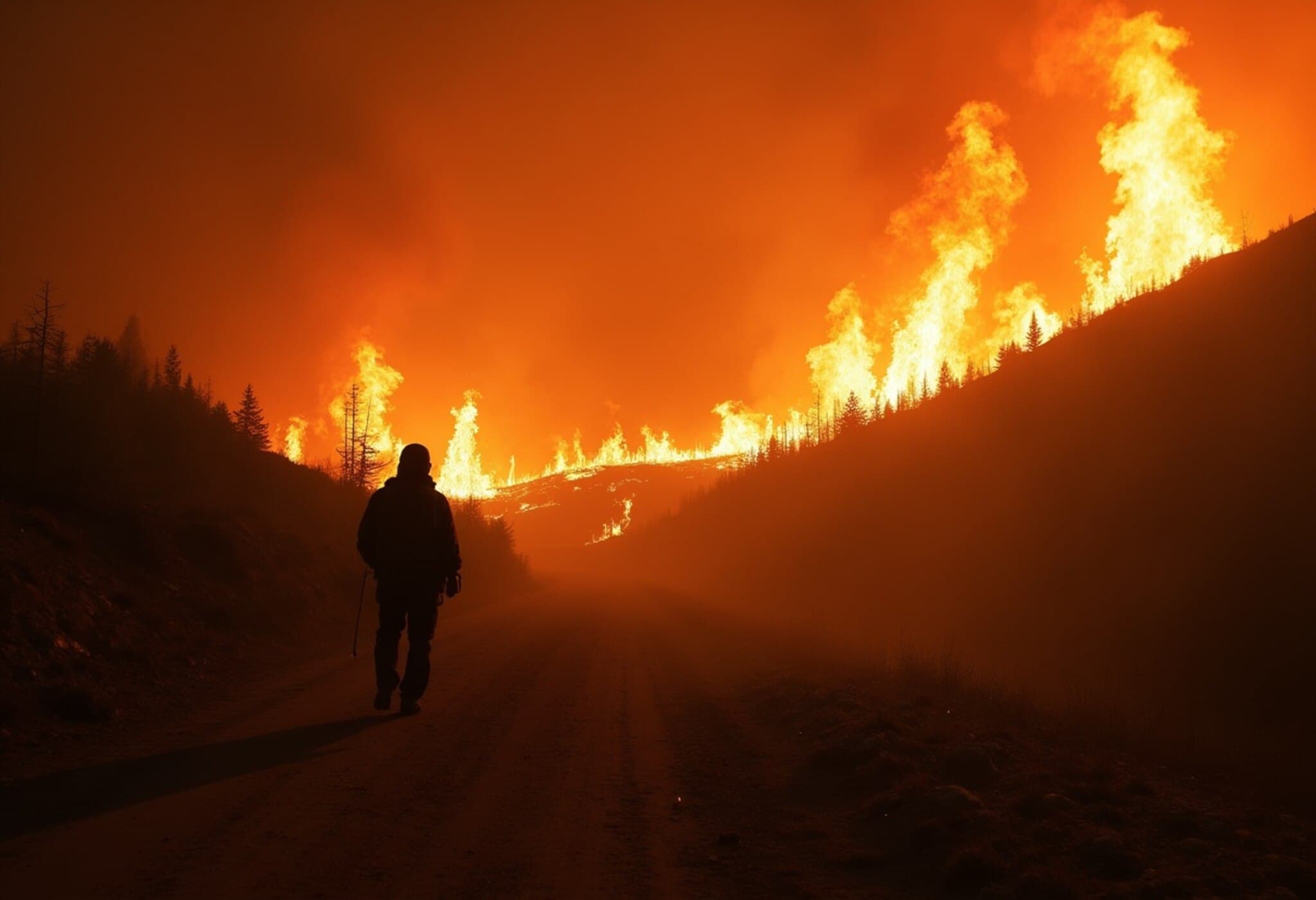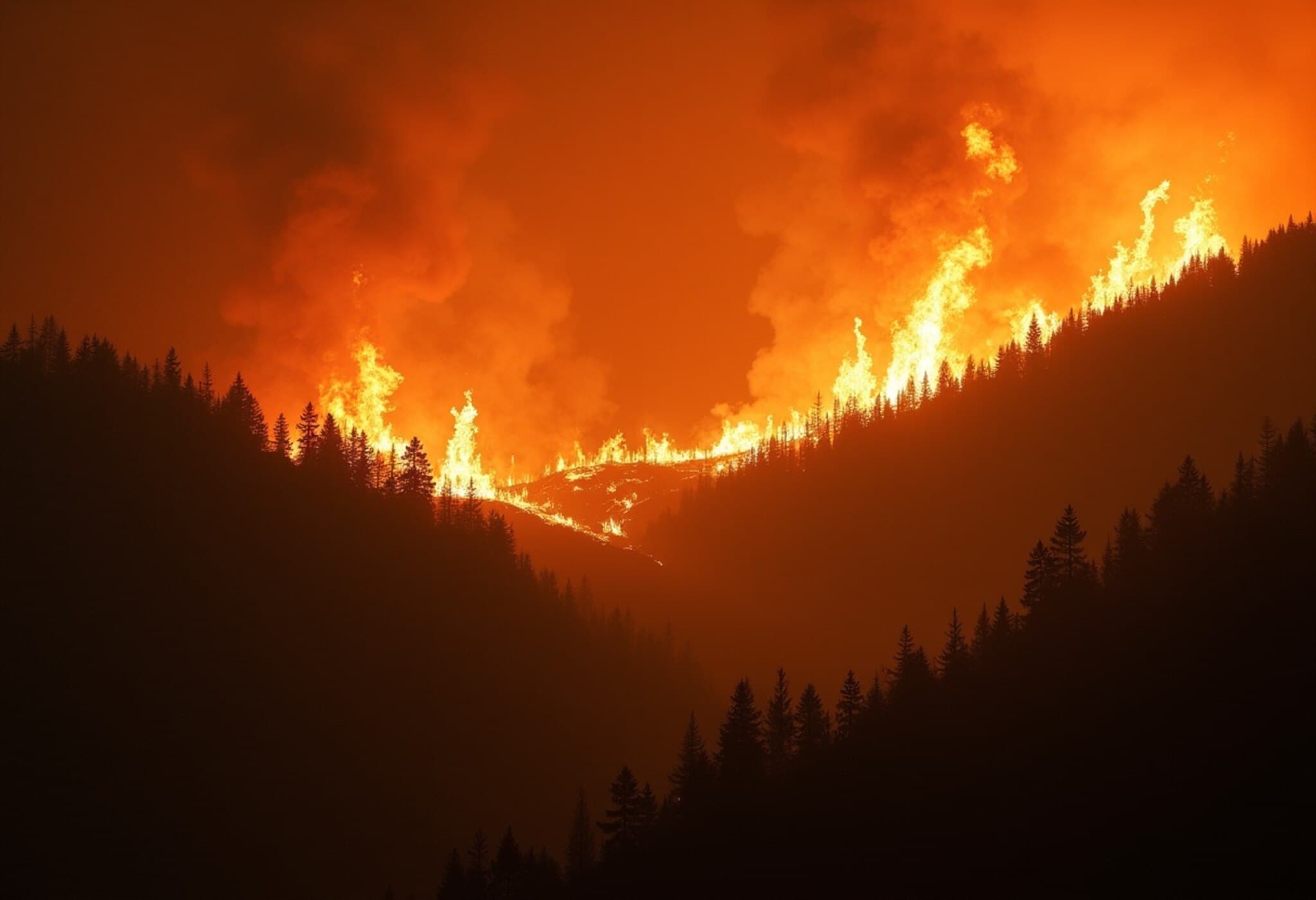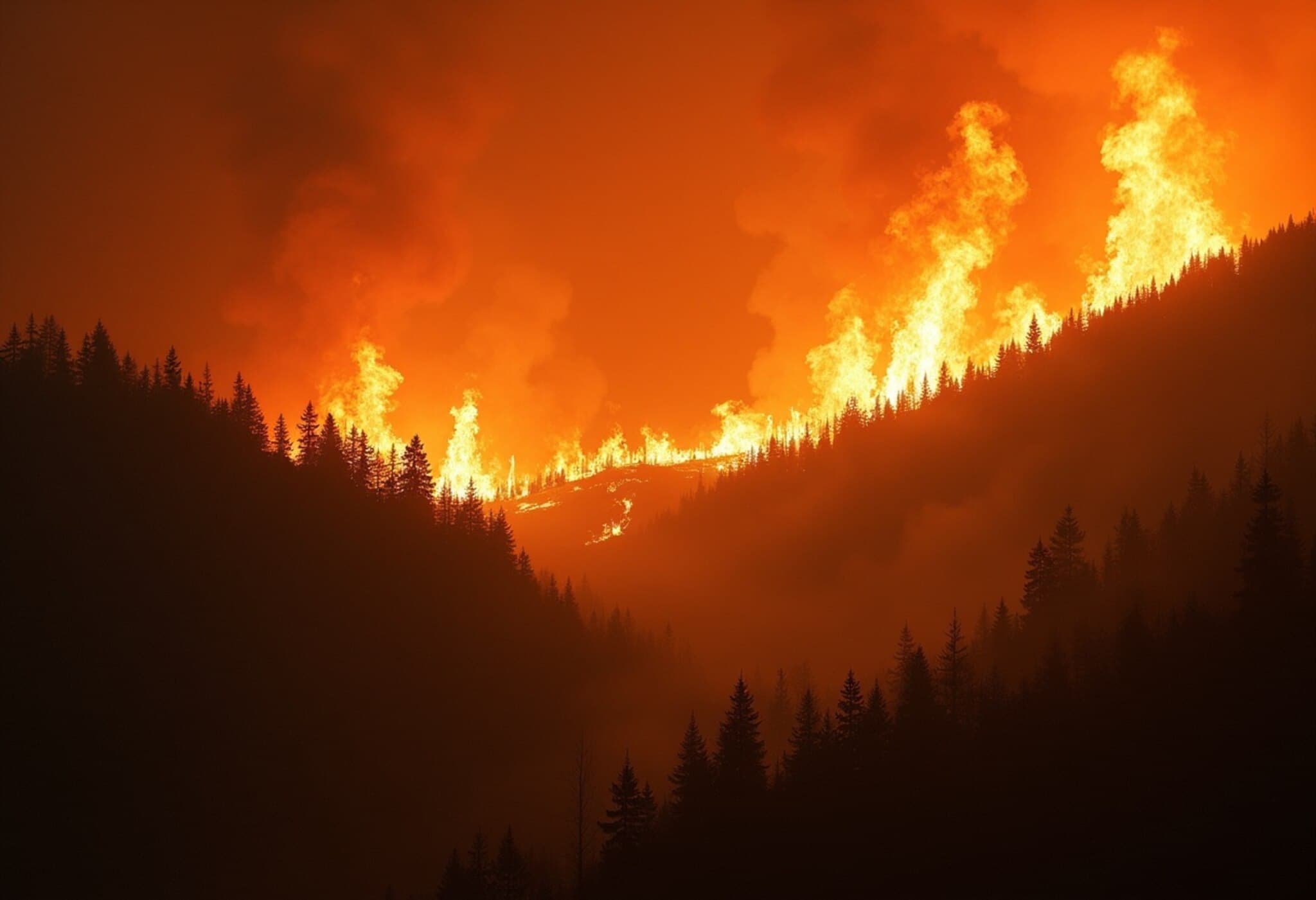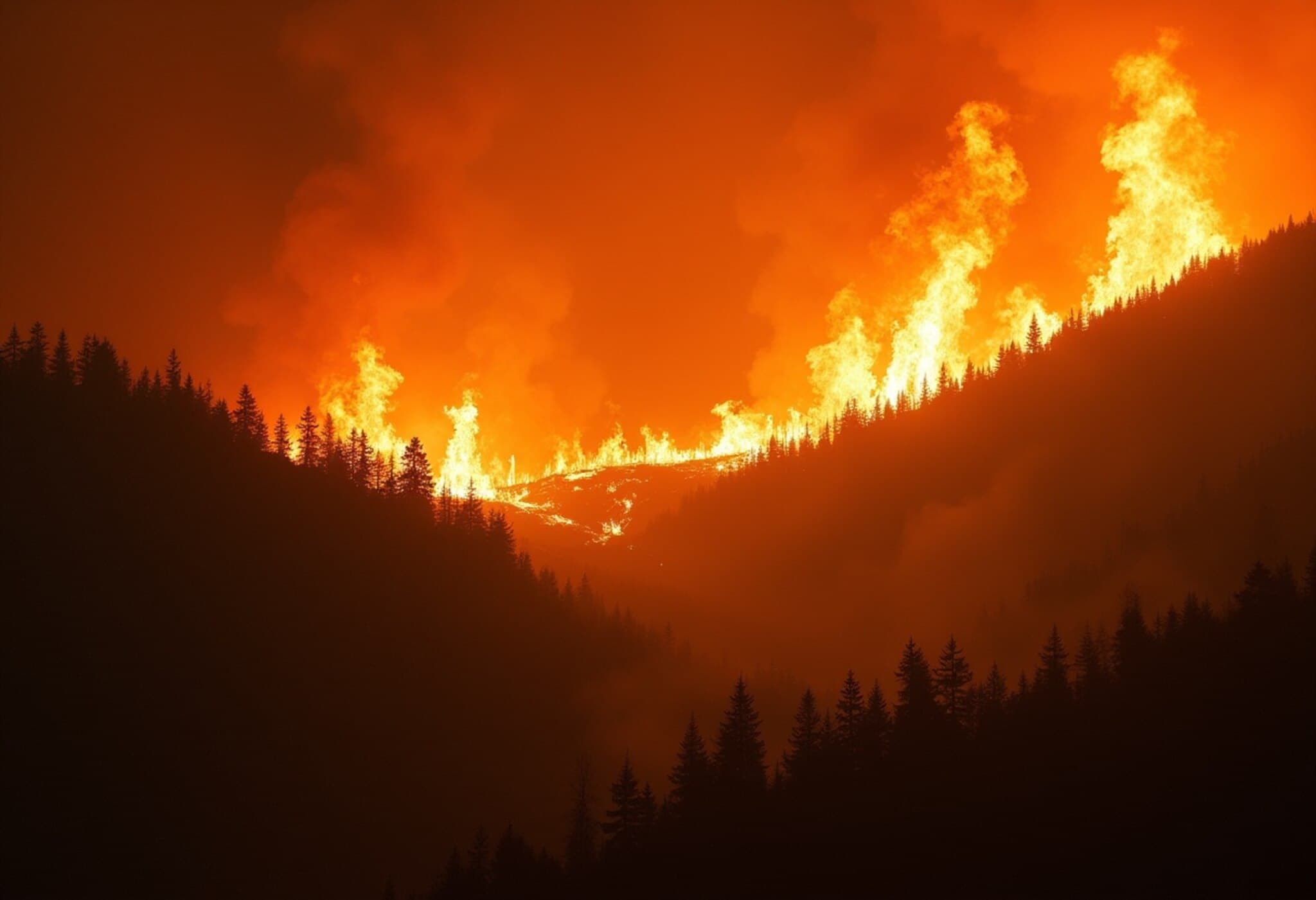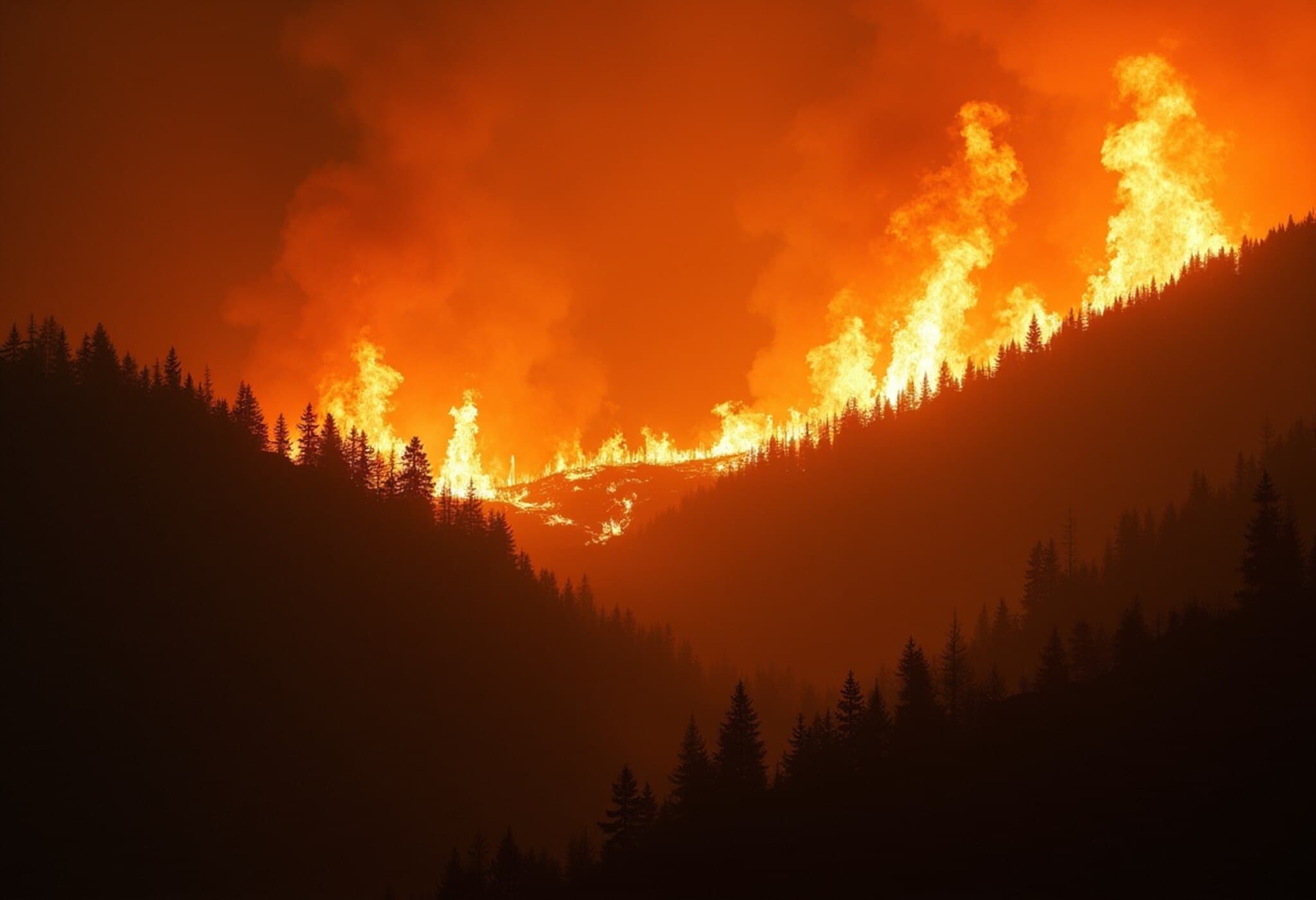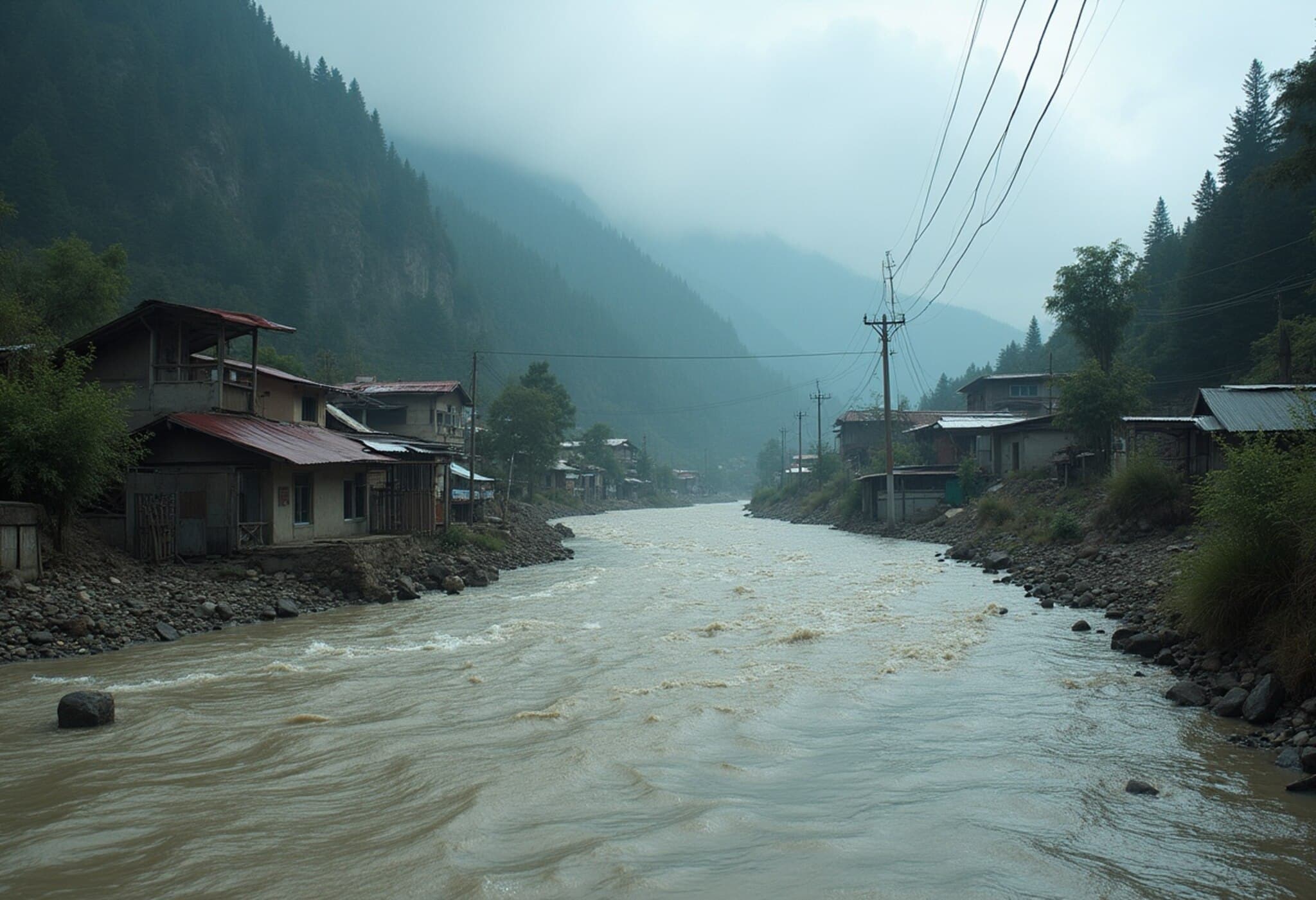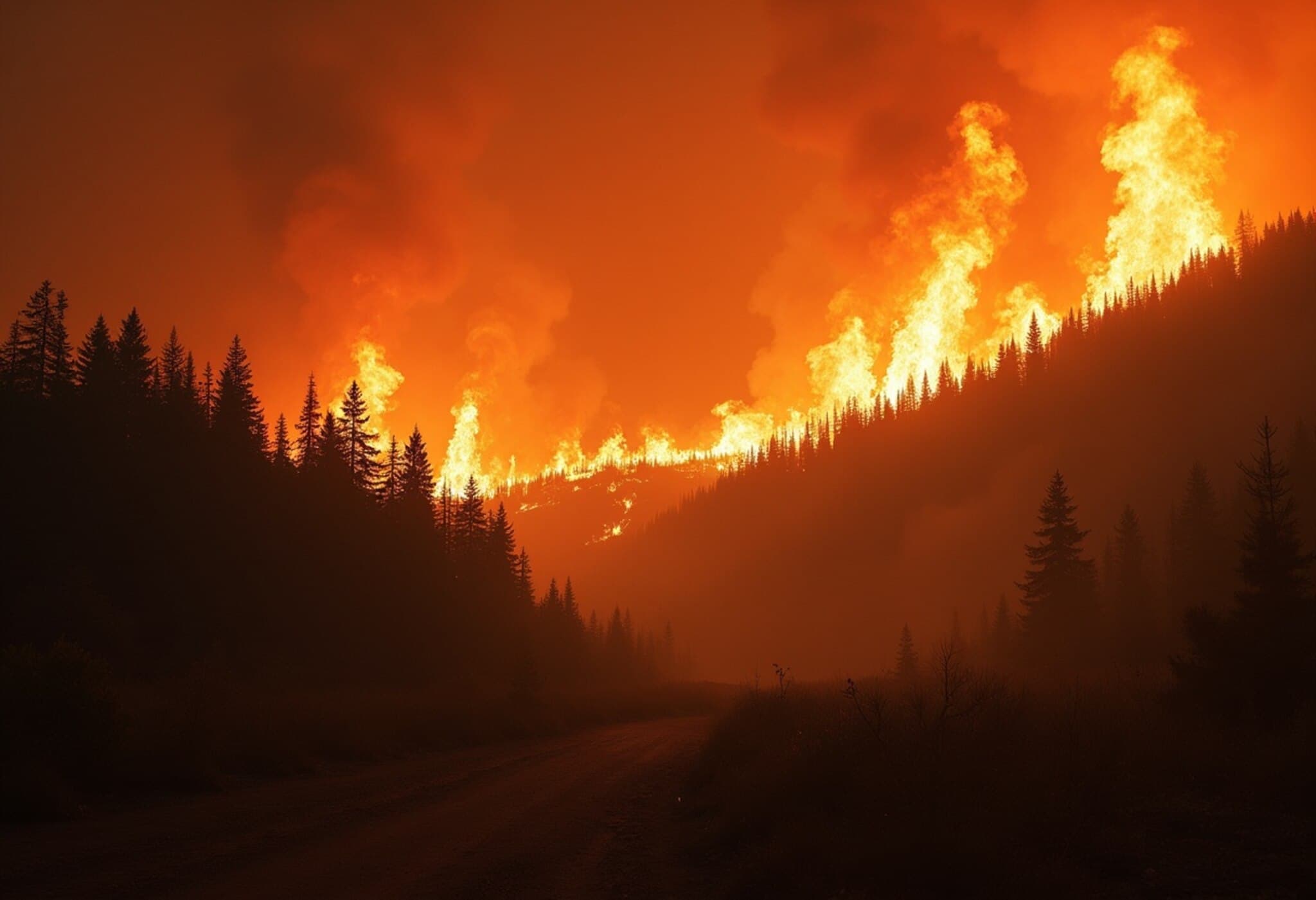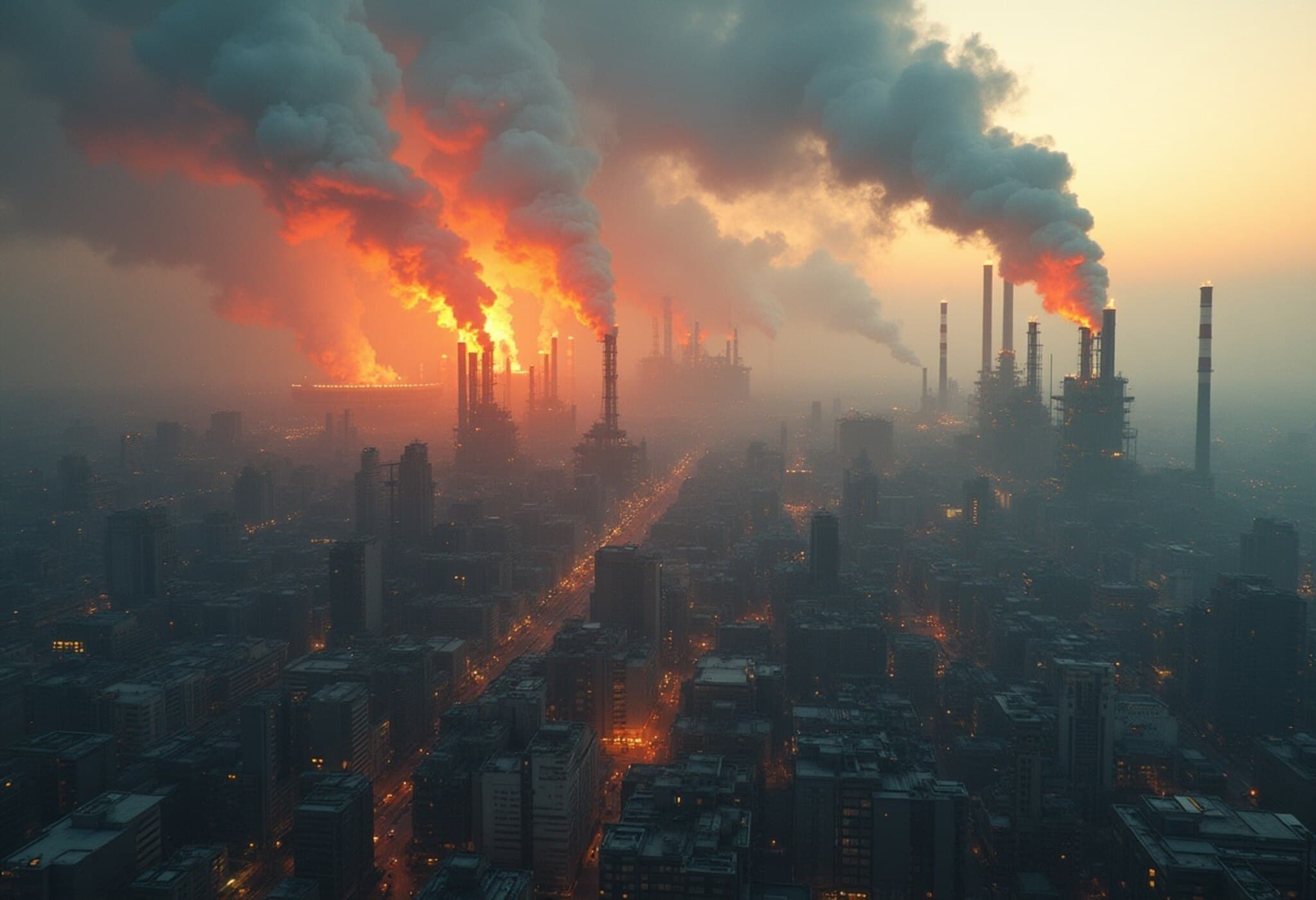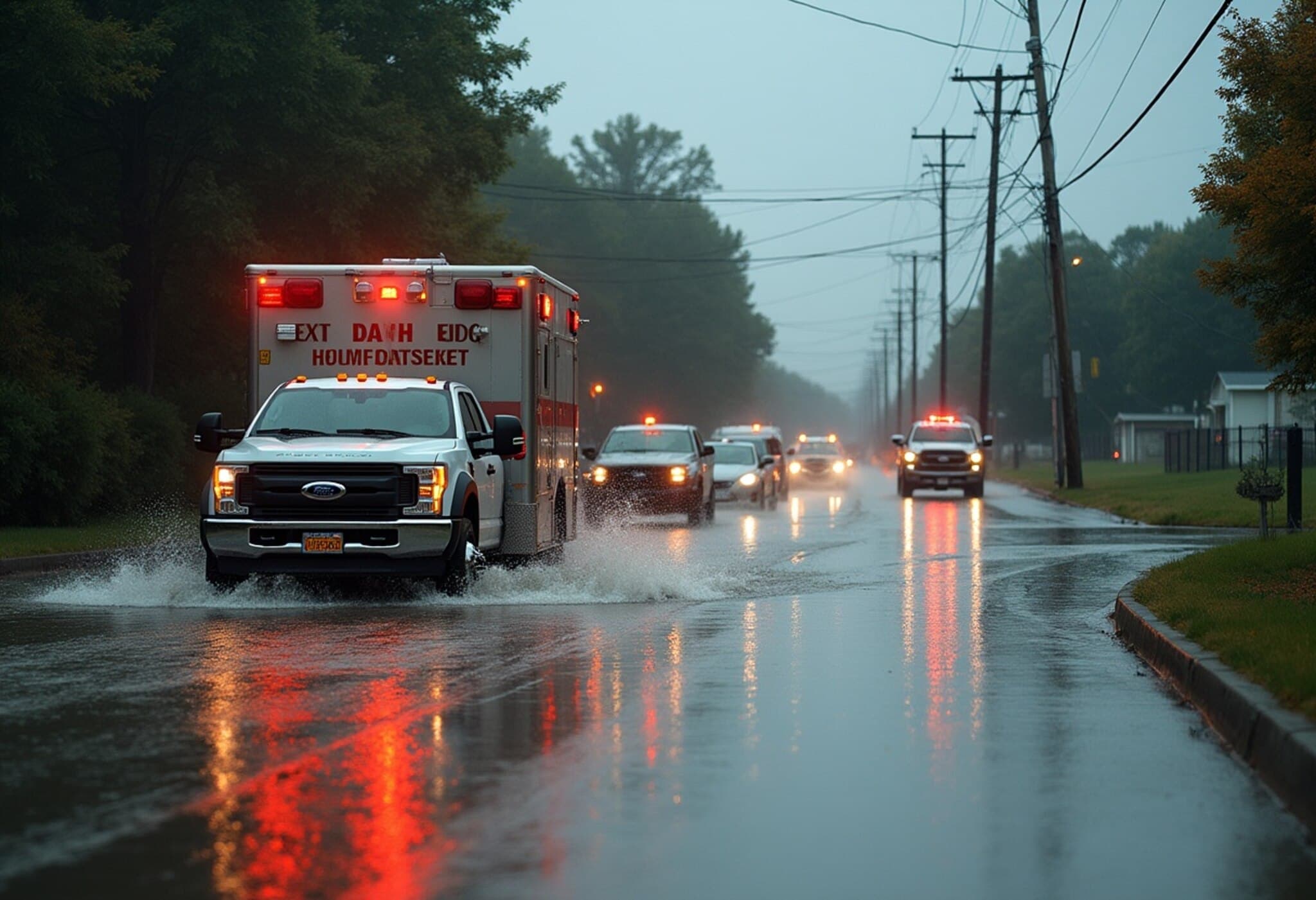Southern Europe Faces Devastating Wildfires Amidst Unrelenting Heatwave
In the summer of 2025, Southern Europe is grappling with an unprecedented wave of wildfires that have tragically claimed at least three lives across Spain, Turkey, and Albania. Thousands more have been forced from their homes as fires consume vast stretches of forest and farmland. According to the European Union’s Joint Research Centre, nearly 440,000 hectares have already been scorched this year—double the typical damage recorded at this point since 2006.
Fires Rage in Greece, Spain, Turkey, Albania and Beyond
Greek firefighting teams are locked in a fierce struggle to contain blazes encroaching on Patras, Greece’s third-largest city. The flames have torn through dense pine forests and olive groves, razing vehicles at a nearby impound lot. Fire Service spokesperson Vassilis Vathrakoyiannis described the situation as "another very difficult day," highlighting the high fire risk persisting across many regions. More than 15 firefighters have required medical attention for burns, smoke inhalation, and exhaustion.
Authorities have enacted emergency evacuations in a town housing about 7,700 residents, extending alerts to two adjacent villages as the wildfire threat intensified. Tourist hotspots such as the islands of Chios and Cephalonia also saw evacuations as flames advanced.
Human Costs Mount: Fatalities in Spain, Turkey, and Albania
Spain’s Castile and León region mourns a volunteer firefighter who succumbed to severe burns while fighting fires near Nogarejas. Spanish Prime Minister Pedro Sánchez characterized the wildfire crisis as "serious" and urged the public to exercise heightened caution during an ongoing heatwave, where temperatures have soared to a staggering 45°C (113°F).
Meanwhile, in Turkey, a forestry worker lost his life in a tragic incident involving a fire truck. Albania reported its own loss: an 80-year-old man died as wildfires threatened the area south of Tirana.
Widespread Effects Across the Mediterranean
Defence Minister Pirro Vengu of Albania described this week as "critical," facing 24 active wildfires simultaneously. Villagers fled with livestock in tow, expressing helplessness against what one called "gunpowder" fast-moving flames. Nearby Montenegro also contends with severe fires near the capital, Podgorica, where the EU has mobilized firefighting aircraft and teams to aid local response efforts.
Portugal’s civil protection services noted that lightning reignited a stubborn blaze near Trancoso, complicating control efforts.
Underlying Causes and Ongoing Investigations
Authorities have traced the origins of some fires to arson, while others stem from dry lightning strikes or unsafe agricultural burning during a parched summer. Spanish Environment Minister Sara Aagesen confirmed multiple fires bore marks of deliberate ignition, a distressing trend amid an already dire situation.
Law enforcement in Spain has detained a firefighter suspected in the ignition of fires in Ávila, with additional suspects being probed in Galicia and Cádiz.
Expert Insight: The Rising Challenge of Wildfire Management
Experts stress that the fire crisis reflects not just natural conditions but also landscape under-preparedness, heightening risks for firefighting crews. Alexander Held of the European Forest Institute remarked, "We expect firefighters to work in conditions we wouldn’t accept in a building without safety systems," underscoring the urgent need for upgraded prevention and safety protocols.
What This Means for Europe and Beyond
The scale and severity of these wildfires bring into sharp focus the complex interplay between climate change—fueling high temperatures and dry conditions—and human factors including arson and land management practices. For policymakers and emergency responders, the current fires serve as a stark call to accelerate investment in forest resilience, early warning systems, and cross-border cooperation in firefighting capabilities across the Mediterranean basin.
Simultaneously, communities face devastating losses—homes, livelihoods, and even lives—testing social solidarity and emergency preparedness as heatwaves become more frequent and intense.
Editor’s Note
The wildfire crisis sweeping Southern Europe in 2025 reveals critical vulnerabilities across environmental, social, and governance dimensions. Beyond the immediate humanitarian impact, these fires challenge stakeholders to rethink forest management, climate adaptation strategies, and public safety frameworks. How will European nations reconcile the escalating threat of climate-fueled disasters with their economic, policy, and community resilience goals? The answers will shape the region’s environmental security for decades to come.

